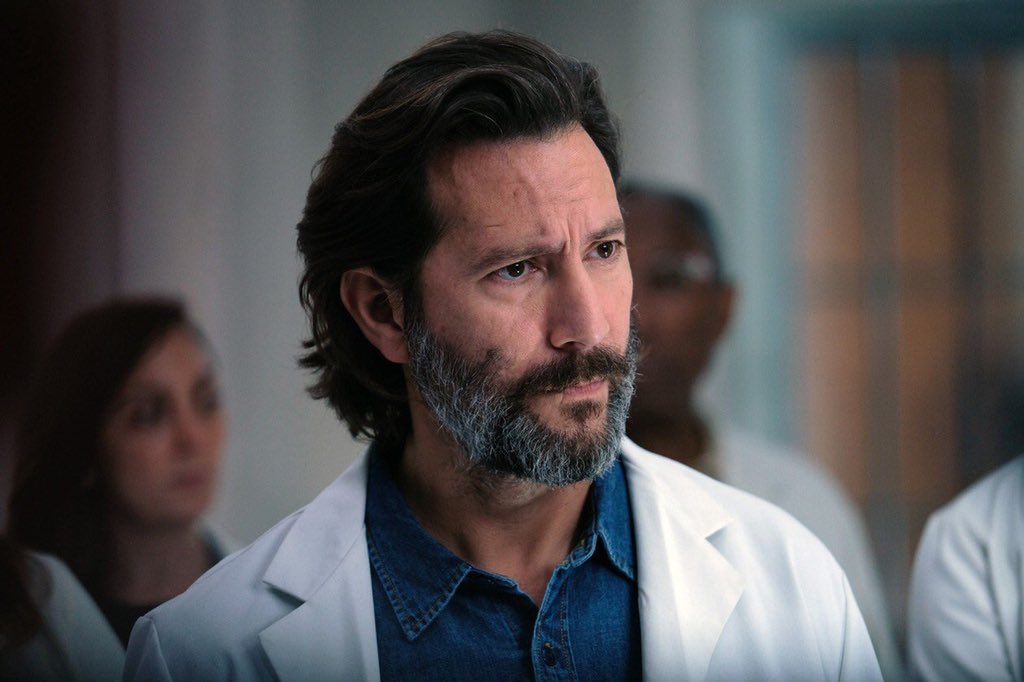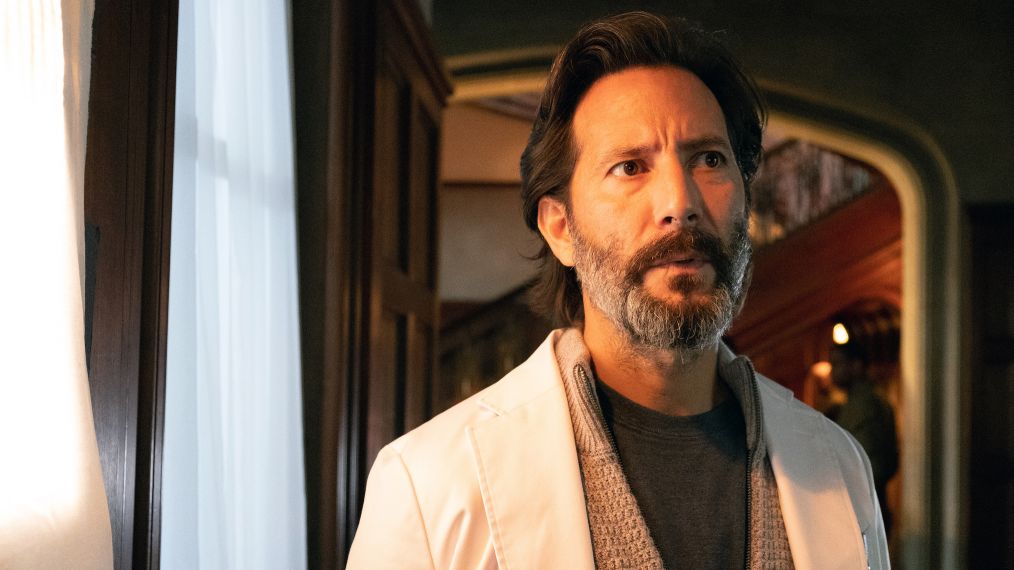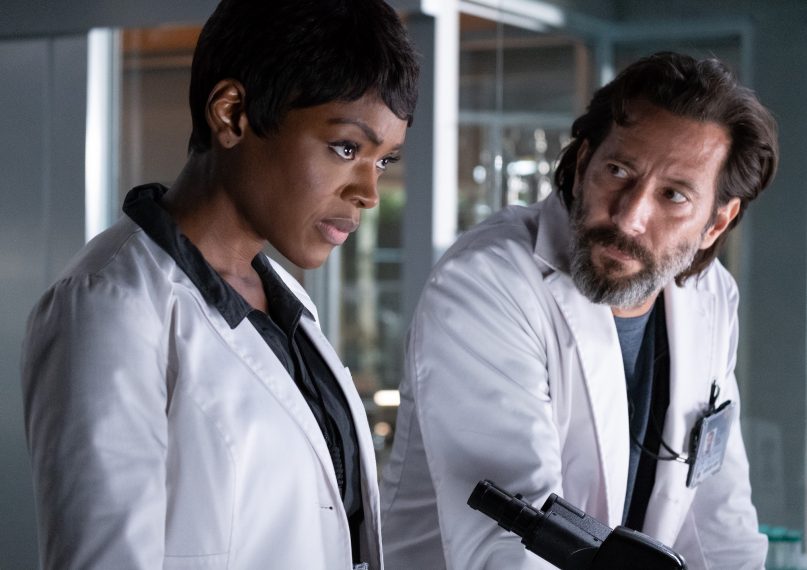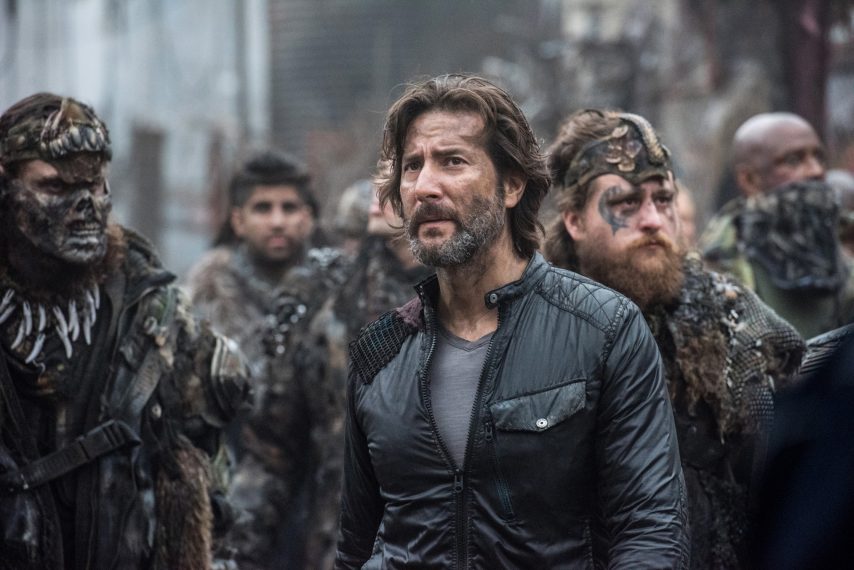SciFi Vision
Published: Monday, 21 January 2019
http://www.scifivision.com/interviews/5525-exclusive-henry-ian-cusick-talks-the-passage-and-teases-what-s-to-come-on-the-100
Tonight the second episode of the new series The Passage airs on FOX. The series follows the secret government facility, Project NOAH, that has found a dangerous virus that scientists think could lead to the cure to every disease, including the outbreak of the Avian flu that is spreading. However, when test subjects turn into monsters, they believe their only chance of success is to give the vaccine to someone younger.
Federal Agent Brad Wolgast (Mark-Paul Gosselaar) is tasked with bringing in young orphan Amy Bellafonte (Saniyya Sidney), but changes his mind and decides to protect her instead.
In tonight’s episode, more backstory is revealed about Dr. Jonas Lear, played by Henry Ian Cusick, who discovered the virus. The story delves into why he and Tim Fanning (Jamie McShane), patient zero, went into the Bolivian jungle in the first place.
Cusick recently talked to SciFi Vision about his work on the series, his character’s backstory, and more. He even teased about what is to come on The 100.
SCIFI VISION: Were you familiar with the book series before becoming involved? Did you read it when you got the role?
 HENRY IAN CUSICK: No. When I got the role, I was a guest star in this show, with the possibility that I might be recurring. There was never – well I don’t know what the writers had thought, but anyway, I was only going to do this one episode.
HENRY IAN CUSICK: No. When I got the role, I was a guest star in this show, with the possibility that I might be recurring. There was never – well I don’t know what the writers had thought, but anyway, I was only going to do this one episode.
So, I hadn’t read the book, but as soon as there was talk of a possibility of coming back as a regular, I read the book. And, you know, I wish I had read the book earlier.
Okay, but you did read the book after. That was going to be my next question. [laughs]
[laughs] Yeah, you know, I said to someone earlier that there’s a great line in the book where Amy Bellafonte talks about her first time seeing Lear, and he’s described as this wild eyed, long haired, great scientist.
Had I read the book, I would have opted to play that a little bit more in the beginning when I first met her. But still, there’s opportunity for me to go down that route, I hope. You’ll just have to watch the other episodes.
Other than the script then, since you hadn’t read the book at that point, was there anywhere else that you pulled inspiration from while creating the character?
You mean just for the pilot?
For the character in general, I guess. I’m not sure how long it was in between filming it.
So, here’s how it was. We shot the pilot, and then there was a break, I believe, and then we got a pickup for the pilot. Then we went in August, I don’t know, around that time, to shoot the rest of it.
I had read the book by then, but even in the book – I don’t know if you’ve read the book, but there isn’t very much for me to go on. There’re bits and pieces. Obviously my relationship with Fanning – in book three, that goes into some depth with Fanning and Lear. But what the writers have very cleverly done, is there’re so many blanks in there, that they’ve kind of filled them in in ways that you’ll find out, especially in my relationship with my wife, Elizabeth (Jennifer Ferrin), and they changed things slightly.
You know, in the book, she’s dying. In our version, she has Alzheimer’s, and I go [to Bolivia] to search for a cure for her.
So, they’ve changed things slightly, but I think in many ways they’ve certainly made Lear a lot richer than anything that was in the book.
But I did use the book as inspiration, as a plot, as markers, to say, you know, “Okay, Tim and I were best friends at Harvard; Elizabeth was part of the group.” You know, things like that.
I know you’ve played scientists before, but did you do any research or talk to any real scientists or anything like that to prepare for the role?
I just went with source material and with the script.
I had a lot of friends in the medical profession. I would ask them certain things, but I didn’t, you know, go to see any microbiologists. I just sort of went with the story and my gut.
When you did decided to take on the role, what was it specifically that stood out to you about the story or character?
What drew me to it, initially, I think, was a scene I was doing in the pilot. I was staring at Fanning, and it struck me quite hard, like, “what an awful predicament.” Here’s my best friend that I took to Bolivia, and here’s what I’ve done with him, and this is what I’m still doing with him. You’ll find out later on how exactly that happened, but here I am, experimenting on my best friend.
And the moment that I was in, I just thought there was a lot of potential storyline there. Is this morally right? Should I just, you know, end his life, or do I carry on experimenting on him?
 I think that was the first time I thought that this character has a lot of potential. And this was when I was doing the pilot. I had no idea that I was coming back, but I think that was the point where in my mind, I thought, this character could come back, because there’s a lot of potential between these two characters. That was the hook.
I think that was the first time I thought that this character has a lot of potential. And this was when I was doing the pilot. I had no idea that I was coming back, but I think that was the point where in my mind, I thought, this character could come back, because there’s a lot of potential between these two characters. That was the hook.
So, you knew at the beginning though the backstory between the characters; that was all revealed to you right away? That’s mostly in episode two.
In the pilot, although I hadn’t read the book, I worked with Jamie, and I said, “Jamie, tell me the book.” Jamie had read everything, because Jamie was super well prepared. At that time he told me the backstories, so yeah.
Okay. I have seen the first three, and in episode two, we find out about his wife and why this all started. Throughout the first few episodes, a few times he voices his concerns about the morality of it, but even though he’s upset about it, he doesn’t do anything to stop it. Can you talk about this inner conflict and how that’s going to continue to affect his job at Project NOAH and his relationships with the other scientists?
I think that’s a really good point, but I justified that – you see that when he starts out, his soul objective is to find a cure for his wife. So, he enlists the help of Tim Fanning. Unfortunately, Tim Fanning brings along the military, and you know, once the military are involved – and he’s not very keen on the military, but he’s caught between a rock and hard place. He thinks, “The military have so much money, and if I could just find that cure, then everything would be fine.” It’s not that way, because, you know, the military are going to weaponize anything they find.
I justified it, that rather than take a moral stand and say “This is wrong; I’m out,” he stays in there, because he thinks, “If I could just find the cure, than it will all be worth it.” So, the end sort of justifies the means. He’d rather be part of the project than be thrown out because he’s taking a political and moral stand.
You mentioned how you filmed the pilot, and that there was a break before filming the rest of the season. It sounds like whole experience took place over a long period of time. Were you flying back and forth between Vancouver and Georgia a lot for The 100? It so, was that difficult? Or was this after the fact? I’m not sure exactly what time frame you filmed this in.
You’re right; I was flying back and forth. Not many times, but I flew back a few times. [laughs] That’s a spoiler.
[laughs] Okay, I won’t put that in then.
[laughs] No you can put it in, actually, read into it what you want.
[laughs] Okay, because that’s one question people kept asking me that I’m like, “I can’t actually ask him if he’s still alive!” I’m like, “I’m not going to ask that!”[laughs]
Ask it. Go ahead and ask me; you can ask me anything.
Okay, [laughs] is Kane alive? [laughs] They wanted to know what was going to happen. I don’t think you are allowed to tell me that!
I will say this. On April the 30th, when it returns to the CW, in the very first episode, you will get pretty much everything you – well, a lot of what you need to know about what happens to Marcus Kane. It’s dealt with very early on. You don’t need to wait. So, definitely tune in and check it out.
I asked Mark-Paul this, so I’m going to ask you. This is genre TV, a science fiction vampire show, but different than what’s been on before. Obviously I’ve seen further, but for people just tuning in, can you give them a tease of why this show is different and why they should check it out?
So, I think what’s special about this show, is the size of it, the epic nature of this show, which is unlike anything else on network, I believe. We’ve seen apocalyptic shows and vampire shows, but we’ve never seen something that has so many different strings.
As you’ve seen from the pilot, you have a beautiful story between Mark-Paul and Saniyya. It’s sort of a father-daughter buddy story, and that really is the heart of the show.
And then, for example, on set I wouldn’t see Mark-Paul. I’d say, “Hey, Mark-Paul, what are you up to?” He’d say, “Oh I’m doing a father daughter movie.” “What are you doing?” He’d say, “I’m doing a vampire movie.” You know, it takes a long time for us to connect with each other, for all the strings of the stories to come together. For example with Vincent Piazza (plays Clark Richards), it took me a long time to get to know his side of the story.
 So, what I like most about the show is the different strings to this epic adventure. And there’re so many other strings to it we haven’t even begun to touch upon. We’ve only [taken some from] the first book even though we did jump around a little bit, but there’s so much more story I think that will really surprise people. Also what the writers have really cleverly done, is they’ve added a lot of backstory which isn’t in the book, so you get to know a lot of my backstory. So, yeah, I would say it’s just the epic size. When you have a big ensemble cast, it’s always cool to pick the ones you really want to follow, who you like the best, the storylines. I think really there’s something for everyone.
So, what I like most about the show is the different strings to this epic adventure. And there’re so many other strings to it we haven’t even begun to touch upon. We’ve only [taken some from] the first book even though we did jump around a little bit, but there’s so much more story I think that will really surprise people. Also what the writers have really cleverly done, is they’ve added a lot of backstory which isn’t in the book, so you get to know a lot of my backstory. So, yeah, I would say it’s just the epic size. When you have a big ensemble cast, it’s always cool to pick the ones you really want to follow, who you like the best, the storylines. I think really there’s something for everyone.
Well, I’m definitively enjoying it so far.
Oh good, I hope you continue to enjoy it.
Thanks. I’m sure I will.
So, is there any room in the show for ad-libbing lines or are they pretty strict with the script?
You know, I’ve worked on LOST, and that was [one where] you could not deviate one jot from the script [laughs], so I know how strict scripts can be. This one we had writers on set, and it really was quite freeing in a way. We could deviate. As long as it meant the same thing as the lines, we could deviate.
And what’s lovely about having these writers, is they were open to suggestions. I think Jamie was really good at ad-libbing some things. And if they were good, they would say, “Yeah, say that.”
Even in the pilot, I think, Liz [Heldens] turned to me, and even though we got the script, she said, “Okay, this time say this” or she’d give me new lines each time.
So, I liked that a lot. I liked the freeness and the ability that we could change things, you know, when you have executives on set.
Was there anything you found particularly challenging?
I guess our time frame was pretty challenging. We were really pushed; we were up against it. For some reason it just seemed you were always – I think there was so much story, so much script, that you were always pushed for time. But challenges like that, that pretty much is common in television. Television works fast, and, you know, I enjoy a challenge anyway. People say “Challenges?” I go, “I want to be shooting, you know, in the Amazon pushing a boat across the jungle.” For me, that would be fun. Not that we did that; I was referencing another movie. [laughs] You know what I mean. The harder it is, the more fun it is for me.
Before you go, I do want to divert for a second. Because I was a huge fan of LOST, I wanted to ask you something about it, but something that was unique and hasn’t been asked, which is pretty hard to come up with. So is there something interesting you can think of that fans haven’t heard a lot about? Maybe a memory that stands out or something?
You know, when I shot LOST, I was so in it. I’ve never had a character that I wake up with in the morning – except in theater, but I’d wake up and I’d think, “I’m Desmond.” You know, I was always Desmond. It was a great gig. It brought me to Hawaii. I still live in Hawaii. It was just one of those [things]. I don’t have any particular story, but I do remember one time being on set and just thinking it just felt so right. It was just a great experience. I just wish I had enjoyed it a lot more when I was doing it. I was so in it that I didn’t really appreciate what I was in. And it’s hard to appreciate sometimes what you’re in. So this time around with The Passage I got to really be in the moment and enjoy it a lot more.
 Okay, well, like I said, I’ve seen the first three, and I’ve really enjoyed it so far. I want to know what happens –
Okay, well, like I said, I’ve seen the first three, and I’ve really enjoyed it so far. I want to know what happens –
I think the show, progressively, I think it gets even so much better. I’m very proud of it. I haven’t seen everything. I’ve seen clips and ADR bits, but from the scripts, you know, it gets progressively better. So I hope you enjoy the rest of it.
I’m sure I will. Before you go, is there anything you tease about something coming up?
Which episode do I want to talk about? There’re so many good bits.
I’m going to give a shout out to Jennifer Ferrin, who plays Elizabeth. I really enjoyed working with her. She does a really great job in that role. Most of my stuff has been with Jamie and Elizabeth and I’ve really enjoyed working with those two. I think that for me is probably my favorite stuff I’ve been doing for the show.
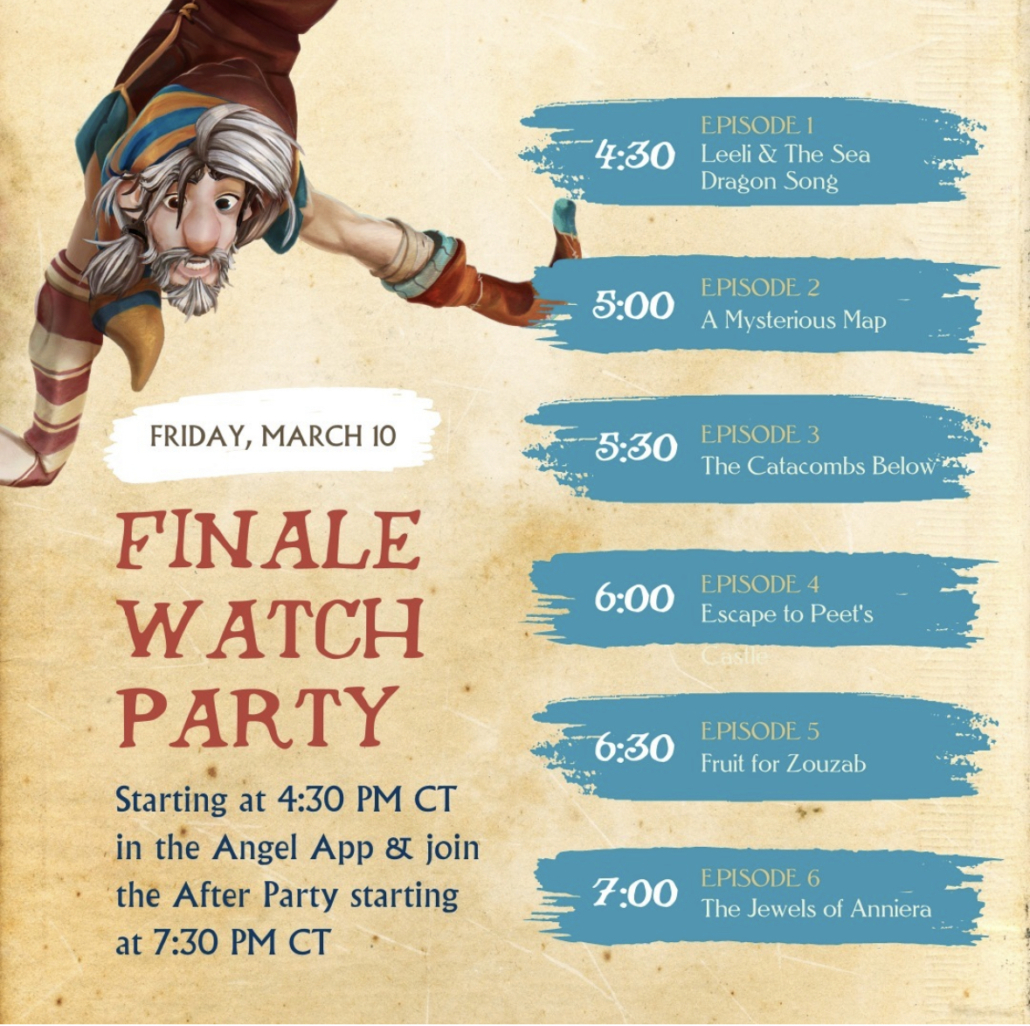

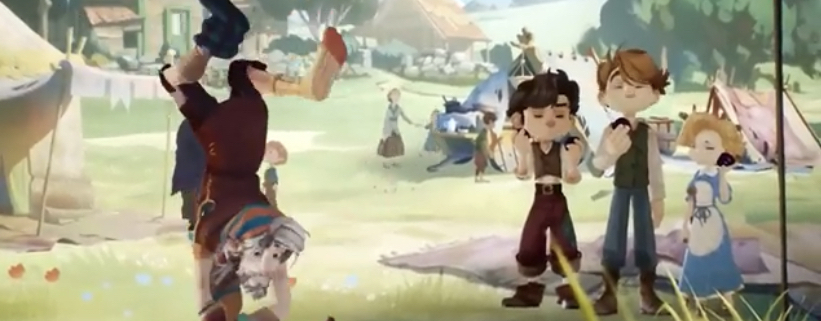
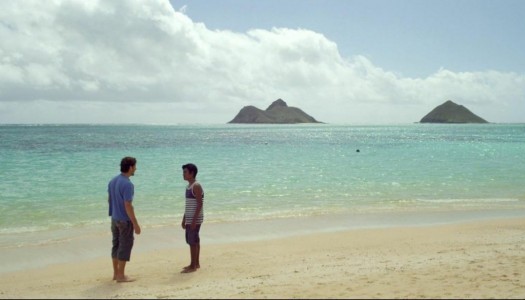









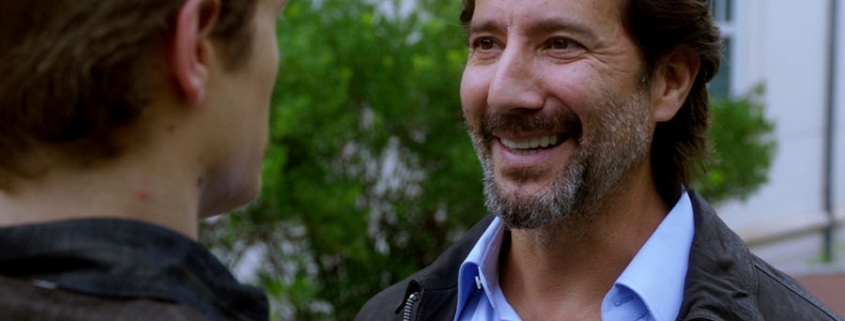
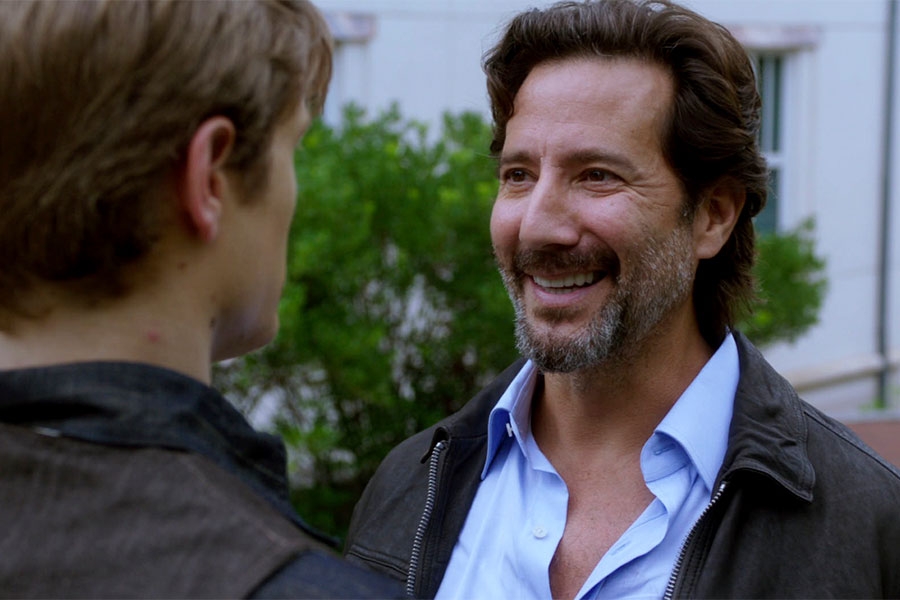
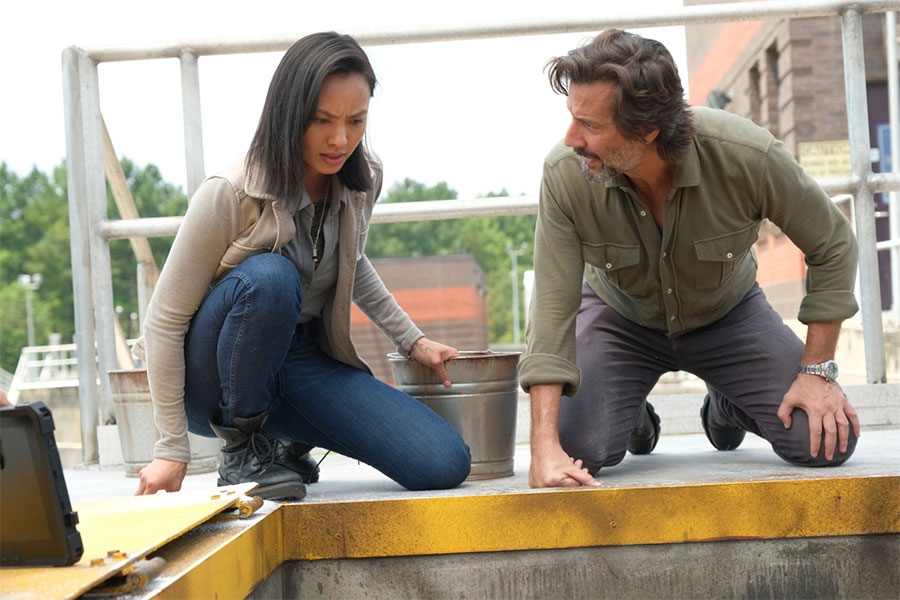
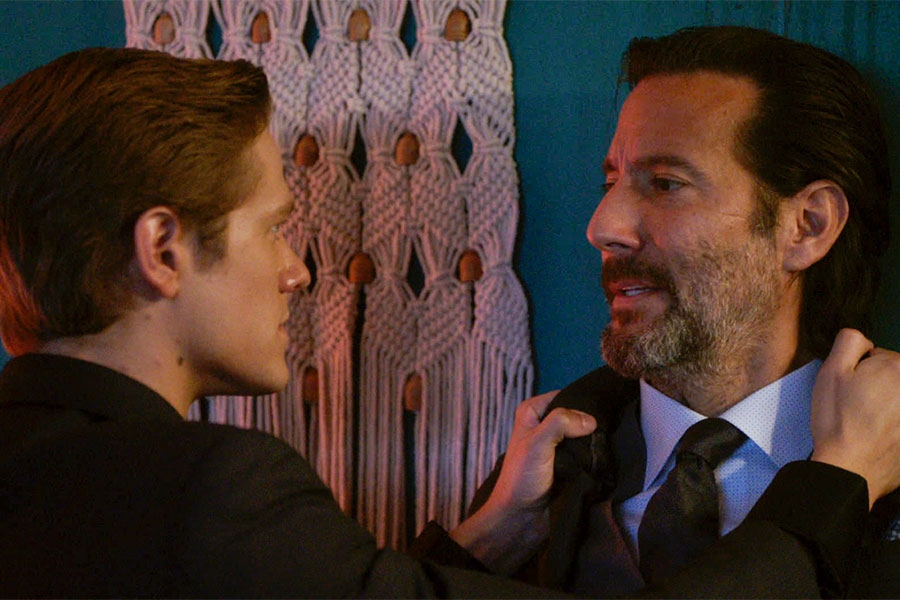
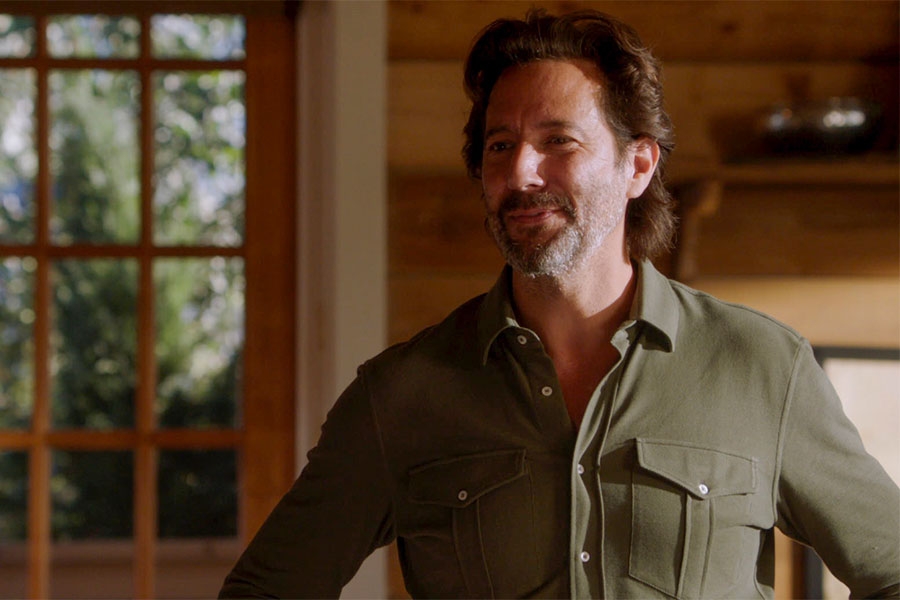
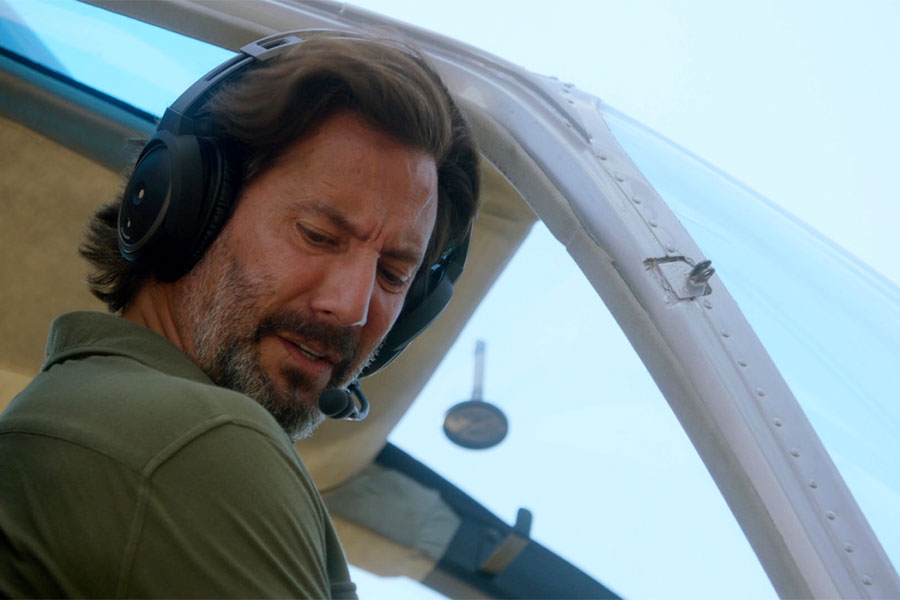
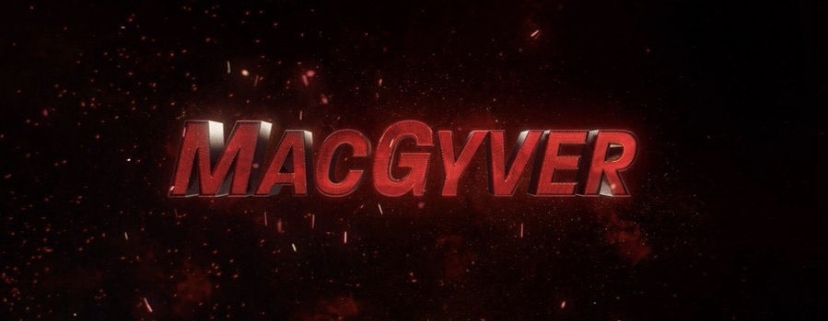


 HENRY IAN CUSICK: No. When I got the role, I was a guest star in this show, with the possibility that I might be recurring. There was never – well I don’t know what the writers had thought, but anyway, I was only going to do this one episode.
HENRY IAN CUSICK: No. When I got the role, I was a guest star in this show, with the possibility that I might be recurring. There was never – well I don’t know what the writers had thought, but anyway, I was only going to do this one episode. I think that was the first time I thought that this character has a lot of potential. And this was when I was doing the pilot. I had no idea that I was coming back, but I think that was the point where in my mind, I thought, this character could come back, because there’s a lot of potential between these two characters. That was the hook.
I think that was the first time I thought that this character has a lot of potential. And this was when I was doing the pilot. I had no idea that I was coming back, but I think that was the point where in my mind, I thought, this character could come back, because there’s a lot of potential between these two characters. That was the hook. So, what I like most about the show is the different strings to this epic adventure. And there’re so many other strings to it we haven’t even begun to touch upon. We’ve only [taken some from] the first book even though we did jump around a little bit, but there’s so much more story I think that will really surprise people. Also what the writers have really cleverly done, is they’ve added a lot of backstory which isn’t in the book, so you get to know a lot of my backstory. So, yeah, I would say it’s just the epic size. When you have a big ensemble cast, it’s always cool to pick the ones you really want to follow, who you like the best, the storylines. I think really there’s something for everyone.
So, what I like most about the show is the different strings to this epic adventure. And there’re so many other strings to it we haven’t even begun to touch upon. We’ve only [taken some from] the first book even though we did jump around a little bit, but there’s so much more story I think that will really surprise people. Also what the writers have really cleverly done, is they’ve added a lot of backstory which isn’t in the book, so you get to know a lot of my backstory. So, yeah, I would say it’s just the epic size. When you have a big ensemble cast, it’s always cool to pick the ones you really want to follow, who you like the best, the storylines. I think really there’s something for everyone. Okay, well, like I said, I’ve seen the first three, and I’ve really enjoyed it so far. I want to know what happens –
Okay, well, like I said, I’ve seen the first three, and I’ve really enjoyed it so far. I want to know what happens –